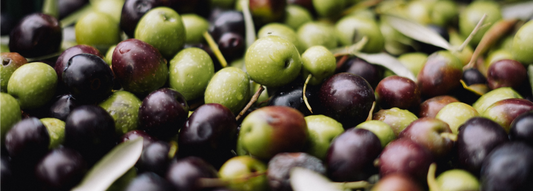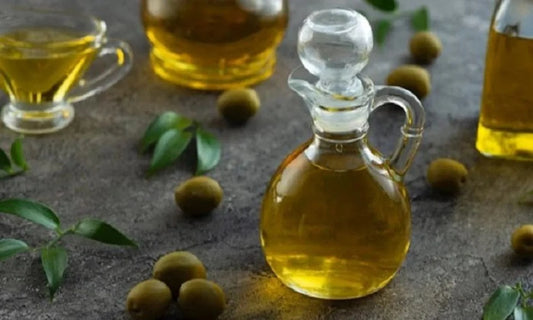Olive oil, the gem of Greek cuisine and a real liquid gold for longevity, is often the target of fraud and substituted by other inferior oils. In order to spot instances of olive oil fraud, there are certain things one might consider.
Real, high-quality olive oil is a storehouse of useful elements and one of the key components of the Mediterranean diet. This product is rich in monounsaturated fatty acids and renowned for its antioxidant and anti-inflammatory properties. Greece often ranks first in the production of the best olive oil in the world.
The beneficial properties of olive oil have been confirmed by many studies, including a study published in the Journal of the American College of Cardiology. This work, spanning twenty-eight years, examined the diets of approximately ninety thousand people who were initially free of heart, circulatory, or cancer-related ailments.
Every four years, participants reported their food consumption habits. The research revealed those who consumed the highest amounts of olive oil, exceeding half a tablespoon daily, had a reduced risk of mortality from various causes. These included heart disease, stroke, cancer, lung disease, Alzheimer’s disease, and vascular dementia.
What Exactly Is Olive Oil Fraud
Olive oil fraud involves the intentional mislabeling of this liquid gold. Most commonly, olive oil fraud occurs when the oil is mixed with inferior types of oils, including vegetable or soybean oil, to reduce production costs.
Bottles labeled as “extra virgin” may also not meet the actual requirements for this label, as they may contain flavor and odor defects. Genuine extra virgin olive oil should have low acidity and be free of other such defects.
Yet another form of olive oil fraud involves misrepresenting the oil’s origin. A significant portion of olive oil labeled as “made in Italy” does not originate from Italy but from countries such as Syria, Morocco, Tunisia, or Turkey. It is then bottled and marketed as authentic Italian olive oil.
Fake Olive Oils in EU and Beyond
The extreme popularity of this precious product has led to an increase in counterfeits. Extra virgin olive oil has become a target for fraud in the European Union and beyond. A review from 2019 found thirty-two cases of fraud globally, including oil substitution, mislabeling, and dilution.
Beyond the EU, olive oil fraud often entailed dilution and oil substitution, including mixing olive oil with soybean oil in Brazil. In Denmark, only six out of thirty-five sampled extra virgin olive oils were found to be genuine in some supermarkets. In Greece, arrests were made for marketing sunflower oil dyed green as olive oil. Spain faced fines for blending imported Tunisian olive oil with lower-quality oil and selling it as virgin olive oil in the United States.
Tips to Identify Genuine Products
When it comes to ensuring that olive oil is genuine and will provide health benefits, there are a few things to consider.
1. Spotting Authenticity.
While shopping, prioritize bottles labeled “extra virgin.” Terms like “pure,” “light,” or “cold-pressed” often lack clear industry standards, making “extra virgin” the safer choice. Additionally, ensure the bottle shows a harvest date within the last 12-14 months to guarantee freshness.
2. The Harvest Date.
When selecting olive oil, it is essential to find bottles that display the harvest date. Ensure the bottle displays a harvest date from the past twelve to fourteen months to guarantee freshness. Beware of products without a date or those with older ones, as they might indicate lower quality or mislabeling.
3. Do a Taste Test.
Even though it might not be easy to spot a fake olive oil through taste alone, this can still be helpful. Authentic olive oils boast a lively, peppery flavor, thanks to the presence of polyphenols. In contrast, fake products often lack this vibrancy and may taste flat, greasy, or even develop a waxy, crayon-like flavor.
- Color and Material of Bottle
Higher-quality olive oil should be packaged in dark glass bottles. This protects the oil from the harmful effects of light and heat. In light of this, it is best to avoid plastic containers so as to prevent the potential leaching of undesirable compounds.
- Geography of Olive Oil
The origin of olive oil is also a vital factor to consider. Look beyond the country of origin and search for details such as the precise region where the olives were cultivated, the specific olive varietals employed, flavor profiles, and other flavor notes. Olive oil bottles that offer this level of specificity are generally more reliable and less prone to adulteration with fillers or lower-quality oils.
- Quality Indication
Unlike fake olive oils, authentic bottles often bear visible indicators of quality. Among them these are PDO (Protected Designation of Origin) or PGI (Protected Geographical Indication) prominently displayed on the label. Such seals serve as robust assurances of adherence to rigorous quality and authenticity standards.
- The Price
As a true health gem with thousands of years of tradition, good olive oil can be a little pricey. Products offered at unusually low prices should raise concerns, especially when they claim to be extra virgin or premium. High-quality olive oil typically commands a higher price due to the meticulous production processes involved.




